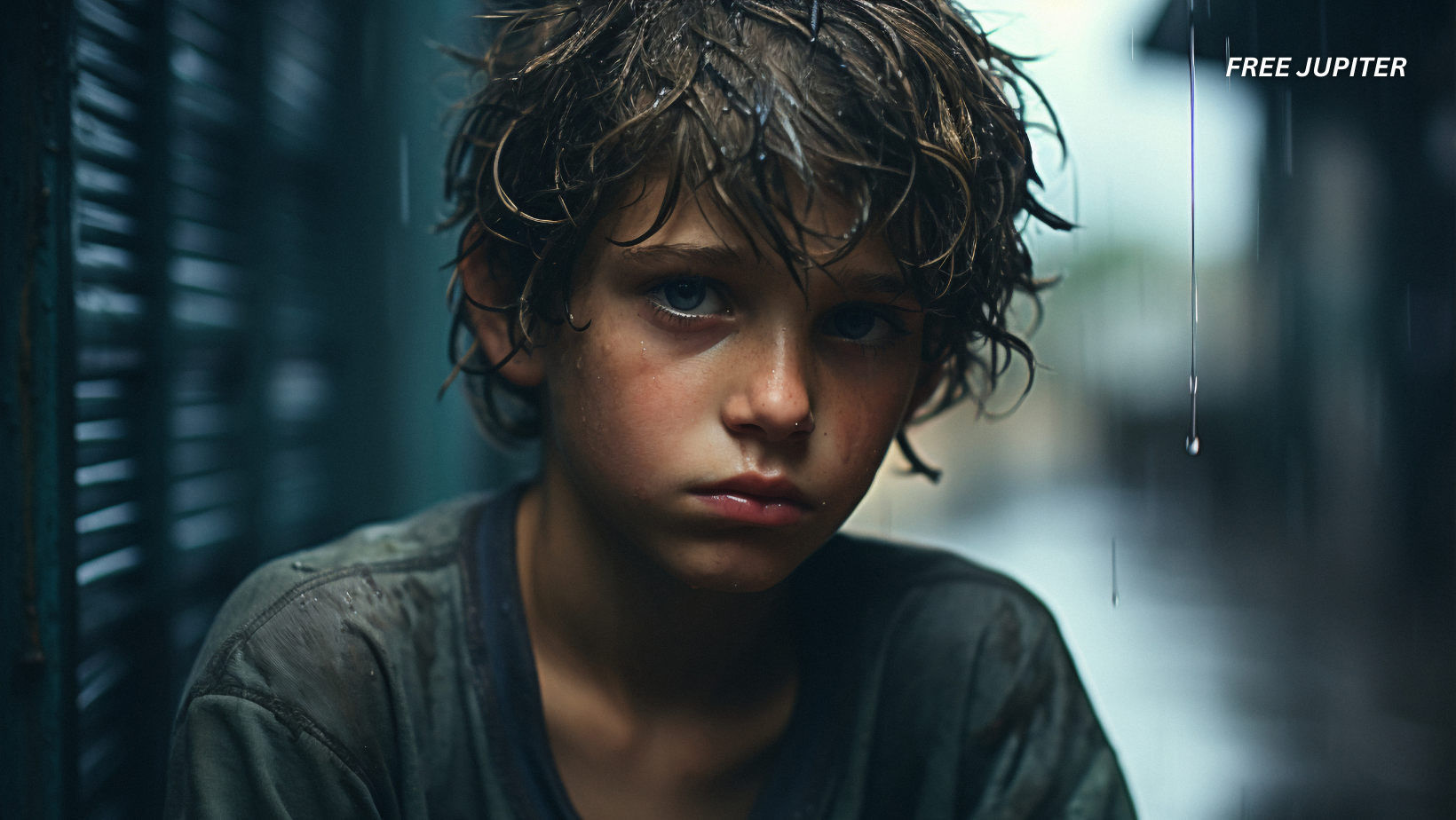Friendly Note: FreeJupiter.com shares general info for curious minds 🌟 Please fact-check all claims—and always check health matters with a professional 💙
Words are more powerful than most people realize. For children, they aren’t just fleeting sounds; they become building blocks of self-esteem, emotional intelligence, and resilience. Parents often speak without malice, blurting things out in frustration or stress. Yet certain phrases, even when tossed out casually, can plant seeds of doubt or insecurity that last well into adulthood.
The good news? With a little awareness, these phrases can be reworked into messages that encourage growth instead of discouragement. Below are 15 common phrases that can chip away at a child’s spirit—plus insight into why they hurt and what can be said instead.
1. “You’re Overreacting.”
To an adult, a broken toy might seem trivial, but to a child it could feel like the end of the world. When parents say this, the underlying message is, “Your feelings don’t matter.” Over time, children may stop expressing their emotions out of fear of being dismissed.
🔹 Why it hurts: It invalidates emotions, teaching children that being expressive is wrong. Bottling up feelings can lead to frustration, anxiety, or emotional distance later on.
🔹 A better alternative: Try, “I can see this feels big for you. Want to tell me more about it?” This approach validates the emotion while gently encouraging conversation.
Read more: Notice These 6 Little Things? It Could Mean You’re Spiritually Gifted
2. “Why Can’t You Be More Like Your Sibling?”
Sibling comparisons may seem like a motivational push, but they usually create rivalry instead of inspiration. One child feels inadequate, while the other may feel pressure to constantly perform.
🔹 Why it hurts: It suggests individuality isn’t valued and that love must be “earned” through achievements.
🔹 A better alternative: Celebrate individuality: “I love how you’re so creative with your drawings,” or “You worked really hard on that puzzle.” This builds confidence in their unique strengths.
3. “I Don’t Have Time for This Right Now.”
Parents juggle countless responsibilities, but children interpret this phrase as “I’m not important.” Even if time is genuinely short, the words can sting.
🔹 Why it hurts: Kids equate attention with love. If they repeatedly feel brushed aside, they may stop sharing altogether.
🔹 A better alternative: Say, “I can’t talk right this second, but I want to hear you. Let’s sit down after dinner.” Following through on the promise shows reliability and care.
4. “Stop Crying.”
Tears are a natural outlet for frustration, sadness, or even relief. Telling a child to stop implies their emotions are shameful or unwanted.
🔹 Why it hurts: It teaches suppression instead of expression, leaving children unsure how to process emotions.
🔹 A better alternative: Say, “It’s okay to cry. I’m here when you’re ready to talk.” Comfort teaches that feelings are manageable, not embarrassing.
5. “You Always…” or “You Never…”
Phrases like “You never listen” or “You always forget” paint children into fixed roles. They stop believing they can change or improve.
🔹 Why it hurts: Absolutes erase nuance. Even if the child tries to improve, these phrases suggest the effort doesn’t matter.
🔹 A better alternative: Be specific: “You forgot to put your shoes away today. Let’s try again tomorrow.” Clear feedback shows the behavior can change.
6. “You’re So Lazy.”
Children often appear unmotivated not out of laziness, but because they’re overwhelmed, distracted, or unsure how to begin. Labeling them lazy turns a temporary behavior into a permanent identity.
🔹 Why it hurts: Children internalize labels. Over time, they might live up to the negative expectation.
🔹 A better alternative: Ask, “What’s making it hard to get started?” Then break tasks into smaller steps and praise progress. Encouragement builds momentum where criticism stalls it.
7. “I’m Disappointed in You.”
While disappointment is a natural reaction, phrasing it this way can sound like rejection of the child’s character rather than critique of their behavior.
🔹 Why it hurts: Children often link their worth to parental approval. Disappointment feels like love has been withdrawn.
🔹 A better alternative: Focus on behavior: “That choice wasn’t kind, but I know you can make a better one next time.” This keeps love intact while encouraging growth.
8. “Because I Said So.”
This phrase may end a debate quickly, but it offers no explanation. Children are naturally curious, and shutting down questions leaves them feeling powerless.
🔹 Why it hurts: It denies children the chance to learn reasoning skills. They follow rules out of fear, not understanding.
🔹 A better alternative: Even brief explanations help: “We can’t cross here because it’s not safe.” This teaches both respect and logic.
9. “You’ll Never Learn.”
Every child struggles at some point—whether with tying shoes, riding a bike, or math homework. Suggesting permanent failure strips away hope.
🔹 Why it hurts: It tells children effort is useless, discouraging them from even trying.
🔹 A better alternative: Say, “It’s tricky now, but with practice you’ll get it.” Encouraging persistence helps them connect success with effort, not talent alone.
Read more: 12 Quiet Ways Men Show Love That Most Wives Don’t Notice
10. “You’re Too Sensitive.”
Children who feel deeply may cry more easily or react strongly to criticism. Labeling them “too sensitive” makes them view empathy as a flaw.
🔹 Why it hurts: They may try to suppress sensitivity, losing a natural strength in the process.
🔹 A better alternative: Reframe sensitivity as strength: “You care deeply, and that’s a gift. Let’s find ways to handle big feelings together.”
11. “You Should Be Ashamed.”
Shame attacks the person, not the behavior. A child scolded this way may feel broken rather than guided.
🔹 Why it hurts: Shame lingers, making children feel unworthy instead of motivated to improve.
🔹 A better alternative: Replace shame with accountability: “That wasn’t fair to your sister. What could you do to make it right?” This builds responsibility without crushing self-esteem.
12. “I Wish You Were More Like…”
Whether referencing a cousin, classmate, or neighbor, this phrase tells children they are lacking.
🔹 Why it hurts: It suggests love is conditional upon becoming someone else.
🔹 A better alternative: Focus on personal strengths: “I love how curious you are about animals.” Encouragement celebrates individuality and builds confidence.
13. “You’ll Never Amount to Anything.”
Often said in anger, this is one of the most damaging phrases. It implies that a child’s future is doomed regardless of effort.
🔹 Why it hurts: Children may internalize it, carrying the belief into adulthood.
🔹 A better alternative: Encourage potential: “You have so many talents—let’s figure out how to use them.” This inspires self-belief instead of despair.
14. “Big Kids Don’t Get Scared.”
Fear doesn’t vanish with age. Suggesting otherwise shames natural human emotion.
🔹 Why it hurts: Children feel weak for experiencing fear, which may lead to denial or silence.
🔹 A better alternative: Say, “It’s normal to be scared sometimes. Let’s find a way to face this together.” This reframes fear as an experience to work through, not hide.
15. “Don’t Be Silly, That’s Nothing.”
Adults may dismiss a child’s concerns as trivial, but to the child they feel significant.
🔹 Why it hurts: It minimizes experiences, teaching children their worries are unworthy of attention.
🔹 A better alternative: Say, “I can see this matters to you. Want to talk it through?” Listening shows respect for their perspective, no matter how small the issue seems.
Why Words Matter So Much
Children build their self-concept largely from the words spoken to them. Negative phrases, repeated over time, can become internal voices they carry into adulthood: “I’m too sensitive,” “I’ll never succeed,” or “I’m not good enough.” On the other hand, constructive language teaches resilience, empathy, and problem-solving skills.
Parenting doesn’t require perfect words every time. Everyone slips up. What matters is awareness and repair—acknowledging mistakes, apologizing when needed, and modeling healthier communication.
Read more: Psychology Says People Who Skip The Intro on TV Shows Share These 8 Unique Traits
Final Thought
Parenting is one of the hardest jobs in the world, and mistakes are inevitable. Yet small changes in phrasing can have enormous impacts. By swapping harsh words for supportive ones, parents create a home where children feel safe to grow, stumble, and try again.
At the end of the day, words can bruise or build. Choosing to build helps raise children who are not only resilient but also compassionate, confident, and ready to face the world.










